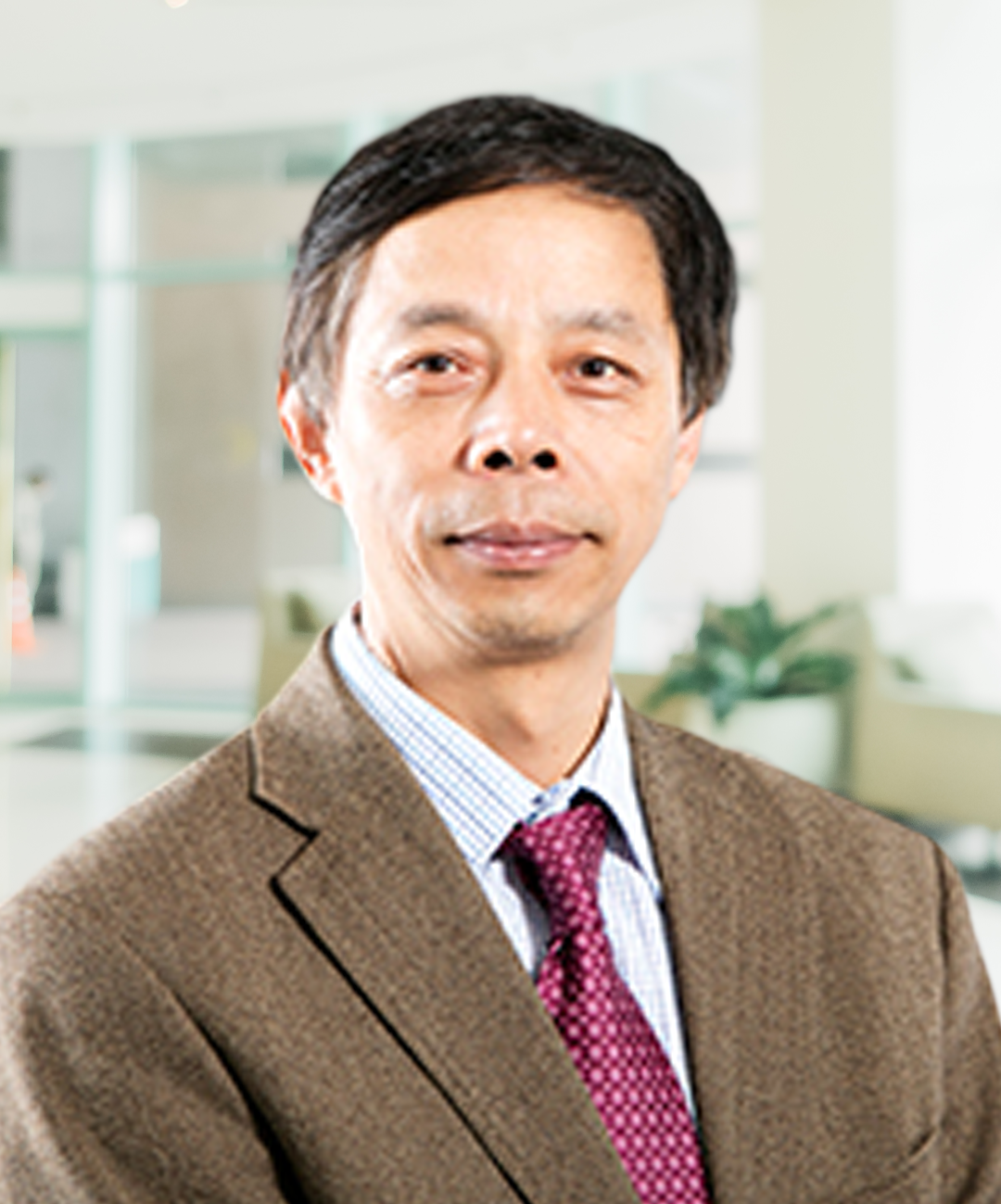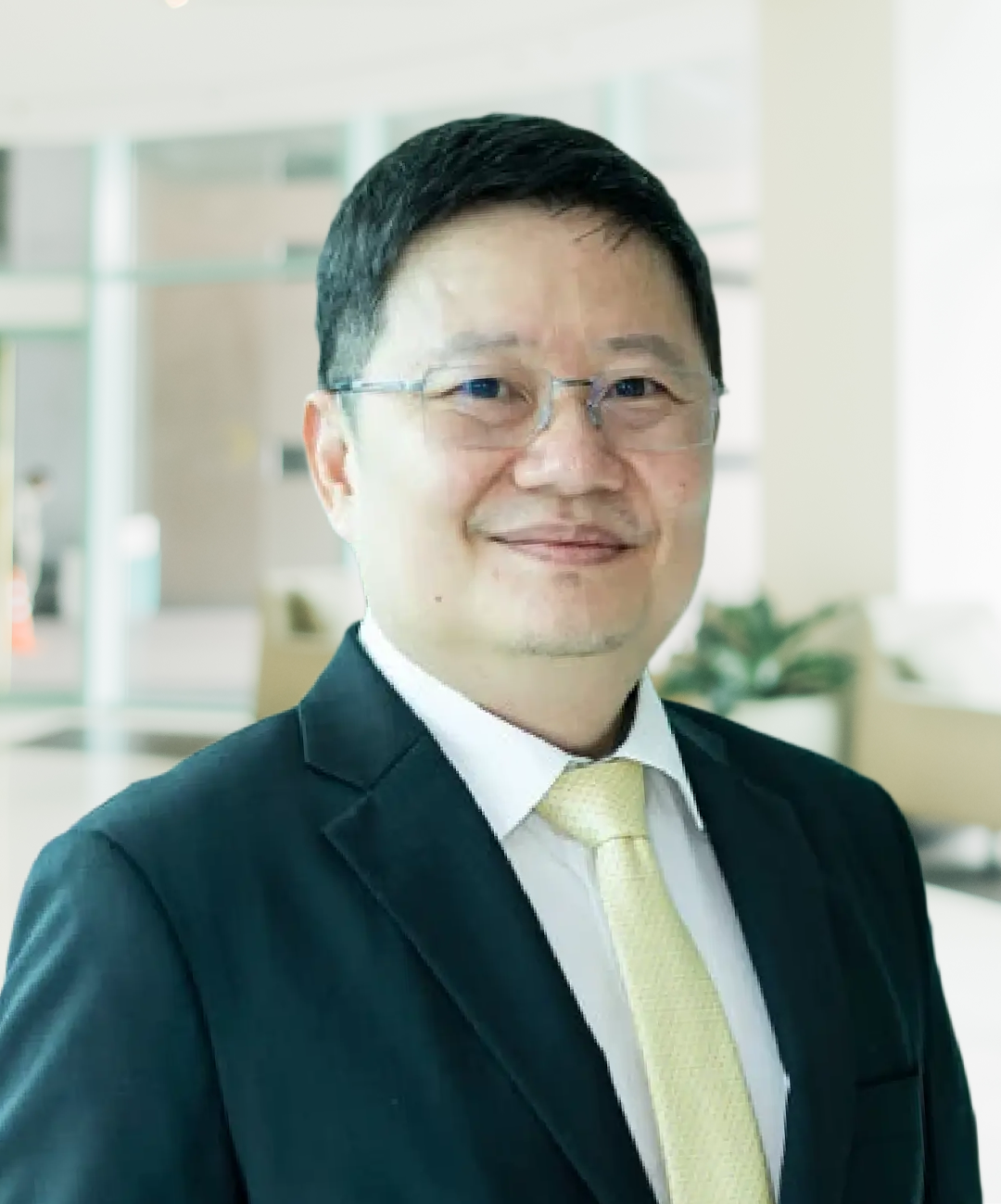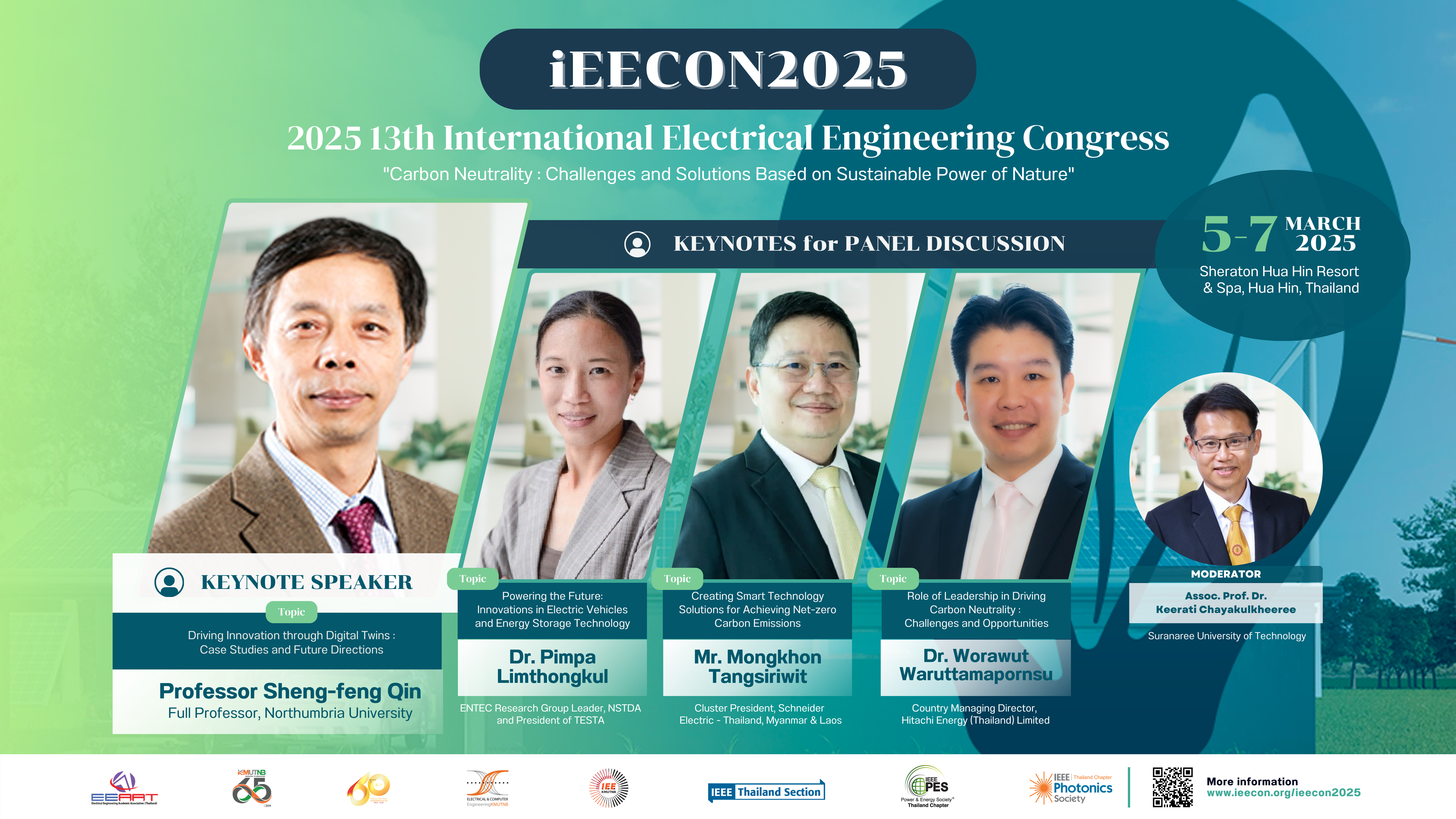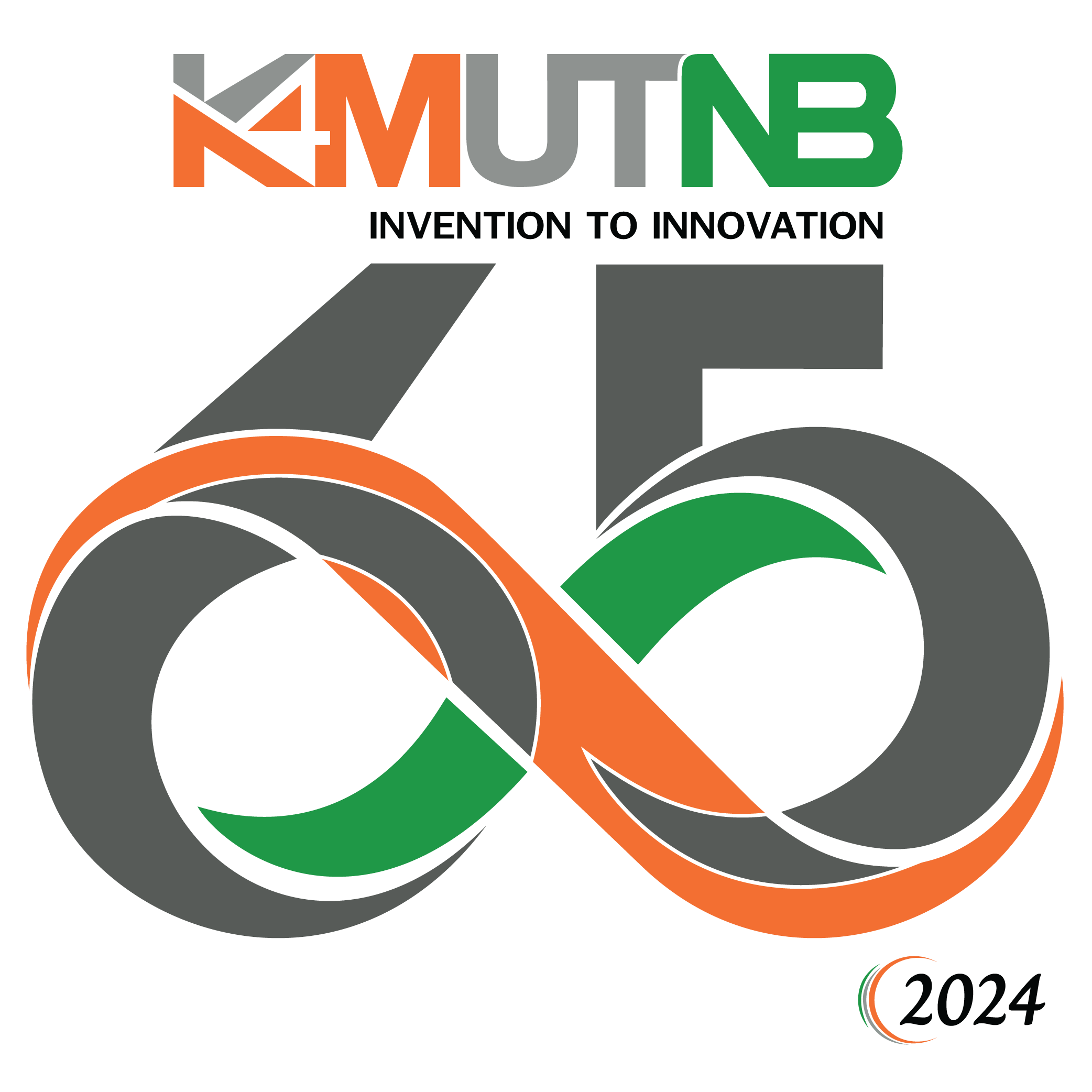KEYNOTE SPEAKERS

Professor Sheng-feng Qin
KEYNOTE SPEAKER
Driving Innovation through Digital Twins: Case Studies and Future Directions
Professor Sheng-feng Qin joined Northumbria School of Design in 2014. He was 2019 Newton Prize recipient based on his collaborative research work with Professor Cuixia Ma at the Institute of Software of Chinese Academy of Sciences on Transforming Service Design and Big Data Technologies into Sustainable Urbanisation.
Prior to this appointment, he worked as a Senior/Lecturer in Department of Design at Brunel University (2001- 2013), a Post-Doctoral Research Fellow (2000-2001) at University of Loughborough, a Research Assistant in the School of Product Design of Cardiff Metropolitan University (1998-1999). He was an Academic Visitor at the University of Birmingham (1996-1997) from East China Jiaotong University.
His research interest is broadly in digital design and manufacturing methods and technology for product-service systems. Early work includes design optimization, Computer Aided Design and Manufacturing (CAD/CAM), sketch-based modelling and interfacing, gesture-based modelling and interfacing, design process and team management.
At Northumbria University, Professor Qin has established the Smart Design Lab (SDL), leading design research into future smart products, services and interconnected systems design by applying cutting edge smart technologies and smart multi-disciplinary design research methods/tools.
Recent research is focused on planet/impact centred design theory, AI and Data-driven smart design methods, design for the product life cycle, design for ecosystem, crowdsourcing and digital twin-based design methods for smart manufacturing, railway, city, product, service, and well-being system. Professor Qin is currently the Director for our MA Design Programme, teaching research principles and methods for this programme. He is the Editor-in-Chief for International Journal of Rapid manufacturing, and an Associate Editor for International Journal of Design Engineering. Prof. Qin has published more than 200 papers in journals and conferences and 2 books. His publication profile can be found on Google Scholar and his ORCID: https://orcid.org/0000-0001-8538-8136.

Dr. Pimpa Limthongkul
KEYNOTES for PANEL DISCUSSION
Powering the Future: Innovations in Electric Vehicles and Energy Storage Technology
Dr. Pimpa Limthongkul earned a B.S. in Materials Science and Engineering from Cornell University USA in 1997 and earned a Ph.D. degree in the same field with a minor in Technology and Policy from Massachusetts Institute of Technology, USA in 2002. She is currently holding a position as Energy Innovation Research Group Director at the National Energy Technology Center (ENTEC), Thailand.
Dr. Limthongkul has over 25 years research and work experiences in both academic, government and private sectors in Thailand and USA. Over 2 decades, her work has been geared towards the development of energy storage materials and systems throughout the value chain to prepare for the transition to electric vehicles, renewable energy and efficient power grid. She has co-authored over 70 scientific publications, co-invented over 20 patents/patents applications, has led and participated over 80 research projects funded by both government and private sectors. Her research work has also helped found 2 battery companies: A123 Systems (2001) and 24M Technologies, Inc USA (2010). She has received several prestigious awards including L’Oréal for Women in Science fellowship (Thailand) in 2014, Innovation Award from Petroleum Institute of Thailand (PTIT) in 2019, and a winner of Underwriters Laboratories-ASEAN-U.S. Science Prize for Women 2023. Her research work has also helped found 2 battery companies: A123 Systems (2001) and 24M Technologies, Inc USA (2010). Her research work has also helped found 2 battery companies: A123 Systems (2001) and 24M Technologies, Inc USA (2010).
Beside leading a research team, Dr. Limthongkul also served as a technical expert in various National leveled committee/sub-committee such as Electric Vehicle Association of Thailand (EVAT), Thailand National Electric Vehicle Policy Infrastructure sub-committee, Working committee in the Thailand Board of Investment for Energy Storage Promotion. She also co-found and is also the President of Thailand Energy Storage Technology Association (TESTA 2021) which has a mission to Exchange-Connect-Nurture-Promote energy storage technologies for clean and efficient power systems in Thailand.

Mr. Mongkhon Tangsiriwit
KEYNOTES for PANEL DISCUSSION
Creating Smart Technology Solutions for Achieving Net-zero Carbon Emissions
Mr. Mongkhon Tangsiriwit currently serves as the Cluster President for Schneider Electric in Thailand, Myanmar, and Laos. In this role, he spearheads initiatives to transform organizations in Thailand towards sustainability through digital technologies and innovations. He is committed to positioning Schneider Electric as a leader in energy management, automation, and sustainability, offering a comprehensive range of solutions and products for homes, buildings, data centers, infrastructures, and industries.
Previously, Mr. Mongkhon held the position of Vice President of Strategic Accounts for Thailand, Laos, and Myanmar. He specialized in developing strategies to help clients achieve their sustainability goals by providing cutting-edge technology, including software and services. He played a pivotal role in the planning and development of digital transformation plans, collaborating with partners in the energy, smart grid, and new energy sectors.
Mr. Mongkhon began his career at Schneider Electric as an engineer and has accumulated over 20 years of experience with the company. Throughout his tenure, he has held several leadership positions within the Sales and Services organization. As Vice President of Strategic Accounts, he was dedicated to establishing Schneider Electric as a digital partner for sustainability and efficiency for its customers.

Dr. Worawut Waruttamapornsu
KEYNOTES for PANEL DISCUSSION
Role of Leadership in Driving Carbon Neutrality : Challenges and Opportunities
Dr. Worawut is the Country Managing Director of Hitachi Energy (Thailand) Limited. He joined Hitachi Energy’s predecessor in 2006 and had worked in sales and marketing management for power products and power systems at the country, regional and global level. Directly prior to becoming Country Managing Director, he was Head of the Company’s Grid Integration Business Unit. Dr. Worawut holds B. Eng. in Electrical Engineering from Chulalongkorn University, Thailand, M. Eng. and Ph.D. in the same field from the University of Tokyo, Japan.

























